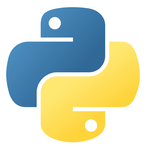The Digital Frontier: Unpacking Developer Trends and AI's Role in Software Evolution** **
July 25, 2024, 7:51 pm

Location: United States, California, San Francisco
Employees: 1001-5000
Founded date: 2008
Total raised: $350M
**
In the fast-paced world of technology, developers are the architects of our digital landscape. Their tools and methodologies shape the future. Recent insights from GitHub's Innovation Graph reveal significant trends among Australian developers, shedding light on the broader implications of artificial intelligence (AI) in software development.
The latest data, covering the first quarter of 2024, paints a vivid picture. Over 1.57 million developers in Australia are actively contributing to GitHub, a platform that has become synonymous with collaborative coding. These developers have uploaded code more than 1.6 million times, showcasing a vibrant community that thrives on innovation. With over 3.4 million repositories owned by Australian developers and organizations, the scale of activity is staggering.
But what does this mean for the future? The data indicates that while the number of developers is impressive, the real story lies in the efficiency gains brought about by AI tools like ChatGPT. Rather than flooding the field with newcomers, these tools enhance the productivity of existing developers. This shift is akin to upgrading a bicycle to a high-speed racing machine; the rider remains the same, but the performance skyrockets.
JavaScript reigns supreme among programming languages in Australia, followed closely by Python and Shell. This hierarchy reflects global trends, where JavaScript's versatility and ubiquity make it a favorite among developers. The data also highlights collaboration patterns, with Australia’s top partners being the United States, United Kingdom, and Germany. This interconnectedness underscores the global nature of software development, where ideas and innovations cross borders effortlessly.
The research conducted by Alexander Quispe and Rodrigo Grijalba at the World Bank delves deeper into these trends. They utilized the Innovation Graph to analyze how ChatGPT influences developer engagement. Their findings suggest that while the number of Git pushes per capita has surged, this increase does not correlate with a rise in the number of repositories or developers. Instead, the acceleration in development processes is the key takeaway. It’s like a well-oiled machine that runs faster without needing more parts.
Quispe's insights reveal a nuanced understanding of AI's role. The integration of large language models (LLMs) like ChatGPT has transformed coding practices. Developers now approach tasks with a new mindset, leveraging AI to streamline coding, debugging, and architectural decisions. This evolution is not just about speed; it’s about redefining how developers interact with their craft.
The researchers employed synthetic difference-in-differences (SDID) methodology to analyze their data. This approach allowed them to construct a synthetic control group, acknowledging pre-treatment differences that traditional methods might overlook. It’s a sophisticated dance of data, ensuring that the analysis remains robust and relevant.
However, the study is not without its limitations. Quispe acknowledges potential biases introduced by VPNs, which may allow individuals in restricted regions to access ChatGPT. Despite these hurdles, the foundational assumptions of their control groups hold firm, reinforcing the validity of their findings.
Looking ahead, Quispe envisions a future where AI tools like ChatGPT and GitHub Copilot become integral to the software development process. This integration promises to enhance productivity and spur economic growth. Policymakers are urged to support this trend, recognizing the potential of AI to revolutionize industries.
For developers, the message is clear: embrace these tools. They are not just enhancements; they are game-changers. By leveraging AI, developers can unlock new levels of efficiency, transforming their workflows and output.
As we stand on the brink of this digital frontier, the role of AI in software development becomes increasingly critical. The data from GitHub serves as a beacon, guiding us through the complexities of this evolving landscape. It highlights the importance of collaboration, innovation, and adaptation in a world where technology is in constant flux.
In conclusion, the trends revealed by GitHub's Innovation Graph are more than just numbers. They tell a story of a community that is evolving, adapting, and thriving in the face of change. The integration of AI tools is not merely a trend; it is a fundamental shift in how we approach software development. As developers harness these advancements, the future of coding looks brighter than ever. The digital landscape is expanding, and those who embrace these changes will lead the charge into a new era of innovation.
In the fast-paced world of technology, developers are the architects of our digital landscape. Their tools and methodologies shape the future. Recent insights from GitHub's Innovation Graph reveal significant trends among Australian developers, shedding light on the broader implications of artificial intelligence (AI) in software development.
The latest data, covering the first quarter of 2024, paints a vivid picture. Over 1.57 million developers in Australia are actively contributing to GitHub, a platform that has become synonymous with collaborative coding. These developers have uploaded code more than 1.6 million times, showcasing a vibrant community that thrives on innovation. With over 3.4 million repositories owned by Australian developers and organizations, the scale of activity is staggering.
But what does this mean for the future? The data indicates that while the number of developers is impressive, the real story lies in the efficiency gains brought about by AI tools like ChatGPT. Rather than flooding the field with newcomers, these tools enhance the productivity of existing developers. This shift is akin to upgrading a bicycle to a high-speed racing machine; the rider remains the same, but the performance skyrockets.
JavaScript reigns supreme among programming languages in Australia, followed closely by Python and Shell. This hierarchy reflects global trends, where JavaScript's versatility and ubiquity make it a favorite among developers. The data also highlights collaboration patterns, with Australia’s top partners being the United States, United Kingdom, and Germany. This interconnectedness underscores the global nature of software development, where ideas and innovations cross borders effortlessly.
The research conducted by Alexander Quispe and Rodrigo Grijalba at the World Bank delves deeper into these trends. They utilized the Innovation Graph to analyze how ChatGPT influences developer engagement. Their findings suggest that while the number of Git pushes per capita has surged, this increase does not correlate with a rise in the number of repositories or developers. Instead, the acceleration in development processes is the key takeaway. It’s like a well-oiled machine that runs faster without needing more parts.
Quispe's insights reveal a nuanced understanding of AI's role. The integration of large language models (LLMs) like ChatGPT has transformed coding practices. Developers now approach tasks with a new mindset, leveraging AI to streamline coding, debugging, and architectural decisions. This evolution is not just about speed; it’s about redefining how developers interact with their craft.
The researchers employed synthetic difference-in-differences (SDID) methodology to analyze their data. This approach allowed them to construct a synthetic control group, acknowledging pre-treatment differences that traditional methods might overlook. It’s a sophisticated dance of data, ensuring that the analysis remains robust and relevant.
However, the study is not without its limitations. Quispe acknowledges potential biases introduced by VPNs, which may allow individuals in restricted regions to access ChatGPT. Despite these hurdles, the foundational assumptions of their control groups hold firm, reinforcing the validity of their findings.
Looking ahead, Quispe envisions a future where AI tools like ChatGPT and GitHub Copilot become integral to the software development process. This integration promises to enhance productivity and spur economic growth. Policymakers are urged to support this trend, recognizing the potential of AI to revolutionize industries.
For developers, the message is clear: embrace these tools. They are not just enhancements; they are game-changers. By leveraging AI, developers can unlock new levels of efficiency, transforming their workflows and output.
As we stand on the brink of this digital frontier, the role of AI in software development becomes increasingly critical. The data from GitHub serves as a beacon, guiding us through the complexities of this evolving landscape. It highlights the importance of collaboration, innovation, and adaptation in a world where technology is in constant flux.
In conclusion, the trends revealed by GitHub's Innovation Graph are more than just numbers. They tell a story of a community that is evolving, adapting, and thriving in the face of change. The integration of AI tools is not merely a trend; it is a fundamental shift in how we approach software development. As developers harness these advancements, the future of coding looks brighter than ever. The digital landscape is expanding, and those who embrace these changes will lead the charge into a new era of innovation.
